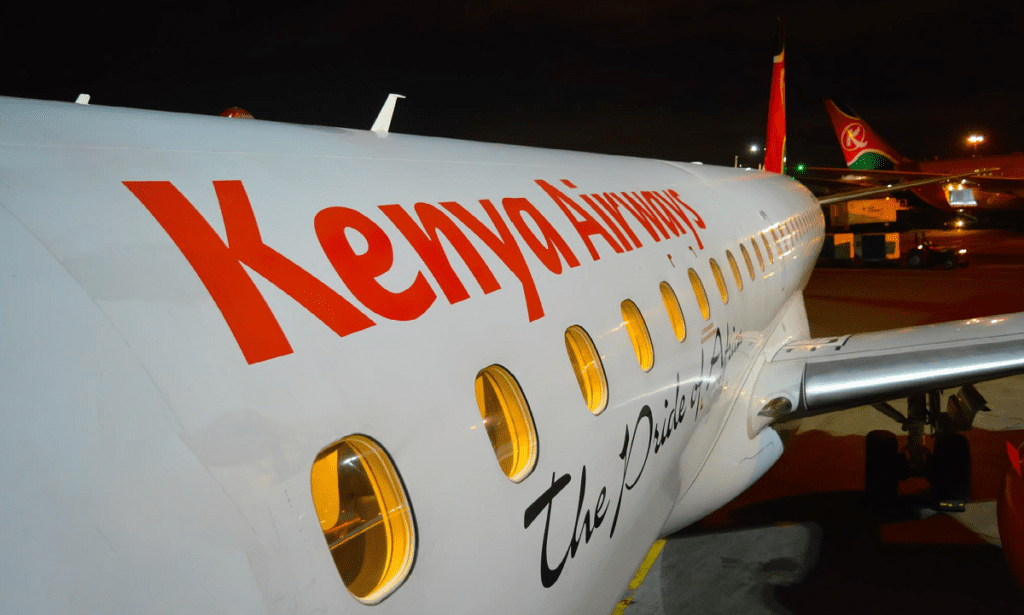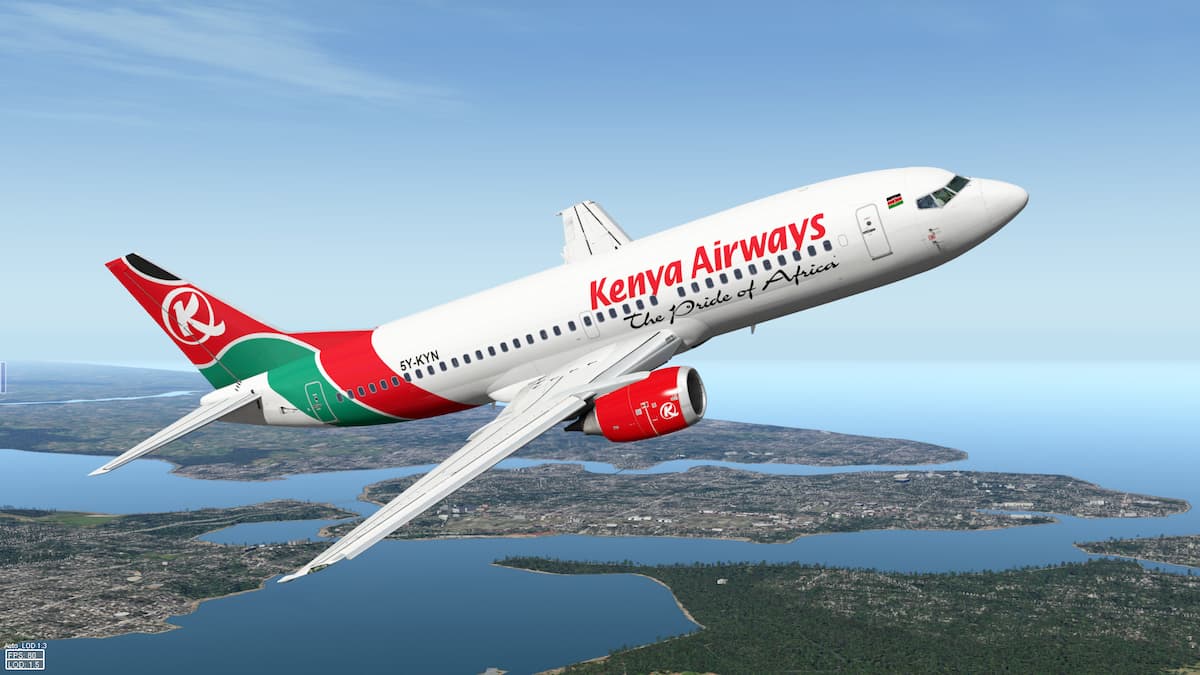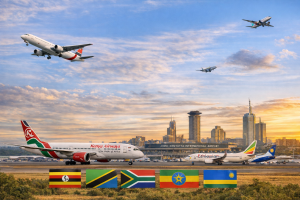
Kenya Airways (KQ) made a triumphant return to the Nairobi Securities Exchange (NSE) this week after a four-and-a-half-year suspension, sparking bullish investor sentiment. Shares of the national carrier initially surged to a high of Sh6 (4.6 US cents) before settling at Sh4.76 (3.7 US cents) per share by Wednesday, valuing the airline at Sh25.21 billion ($193.67 million).
The Journey Back to the Bourse
Kenya Airways’ suspension from trading in July 2020 came amid efforts to nationalize the airline in response to crippling debt and the impact of the COVID-19 pandemic on global travel. At the time, shares traded at Sh3.83 (3 US cents). However, the nationalization plan was abandoned after the airline showed signs of recovery and a change in Kenya’s administration in 2022 under President William Ruto, who shifted focus to privatization.
The airline’s return to the NSE coincides with its first profitable financial year since 2013. For the first half of 2024, Kenya Airways recorded a profit after tax of Sh513 million ($3.96 million), driven by a 22% rise in revenue to Sh9 billion ($69.5 million) and a 10% increase in passenger numbers to 2.54 million.

“The suspension on the trading of Kenya Airways PLC shares was lifted following the company’s recent performance, which saw the company record a profit after tax and the withdrawal of the National Aviation Management Bill 2020,” the NSE stated.
Turning the Corner: Restructuring and Recovery
Kenya Airways’ turnaround strategy has been central to its resurgence. By implementing measures focused on cost reduction, capacity expansion, and financial restructuring, the airline reduced overheads by 22% and significantly eased its debt burden. CEO Allan Kilavuka highlighted the company’s efforts to strengthen core operations and enhance customer service, positioning it for sustained growth in a challenging aviation environment.
The government played a critical role in alleviating Kenya Airways’ financial woes by taking on a significant portion of its debt. In 2022, it converted the $841.6 million EXIM Bank loan—secured in 2017 for fleet expansion—into local currency, reducing the financial strain caused by exchange rate volatility.
Currently, the Kenyan government holds a 48.9% stake in the airline, local commercial banks own 38.1%, KLM Royal Dutch Airlines 7.8%, and minority shareholders hold 2.8%.
Challenges Ahead: Negative Book Value
Despite its recent profitability, analysts caution against overlooking the airline’s negative book value, which stood at Sh123.6 billion ($954 million) as of its last financial report. This metric reflects the lingering impact of years of losses and highlights the airline’s precarious financial position.
Ronny Chokaa, an analyst at Capital A Investment Bank, noted, “The improved turnaround of KQ sets the pace for investors to price in the recovery performance going forward. But the company’s biggest problem may be the negative book valuation that may slow down the bullish activities of the stock.”
Searching for a Strategic Investor
Kenya Airways continues its quest for a strategic investor to stabilize its financial footing and drive long-term growth. The government has expressed willingness to relinquish its majority stake to an investor with the capacity to revitalize the airline. However, despite reports of progress in securing an investor, no formal announcement has been made.
A Path Forward
Kenya Airways’ relisting on the NSE marks a pivotal moment in its recovery journey, fueled by financial restructuring, operational efficiency, and renewed investor confidence. While challenges remain, including the pressing need to address its negative book value, the airline’s improved performance signals a potential new era for one of Africa’s most iconic carriers.
Investors and aviation stakeholders will closely watch KQ’s next steps, particularly its efforts to secure strategic investment and maintain its financial momentum in a competitive and volatile global aviation market.
Source: Airspace-Africa





